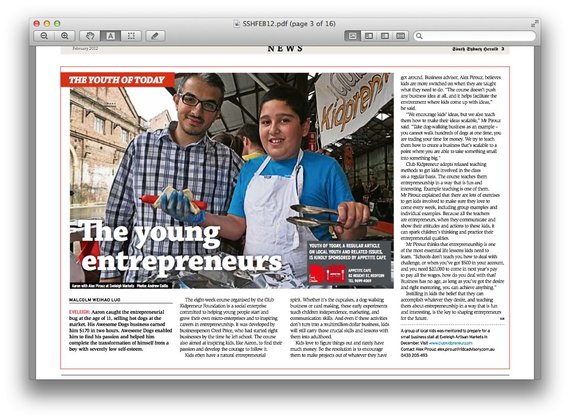It happens every January...
Gyms are packed to capacity with new members pumped and primed to get in shape and live healthier lives.
Two weeks later?
You can almost hear the crickets as the gym is virtually deserted with the exception of the regulars and maybe a couple new faces that managed to stick with it.
We all make New Year's resolutions.
Exercising more, eating healthier, quitting smoking, snacking less, and the list goes on and on.
But how many of those resolutions actually get accomplished?
Well according to statistics... only about 8% of people that make resolutions actually see them through.
This is not to say that resolutions are pointless. It's actually the opposite... goal setting is hugely important to achieving success in all areas.
In fact, people who explicitly make resolutions are 10 times more likely to attain their goals than people who don't explicitly make resolutions.
So simply making a resolution immediately puts you ahead.
Setting a goal is the very first step you take in achieving that goal.
Goals keep you focused and motivated. A properly set goal (more on that later), helps you track and measure your progress and overcome procrastination.
But if goals are so important... why is it that we fail to accomplish so many of the goals we set? To understand this, you need to think back to a goal you did reach.
For example, maybe there was a project you were working on at work that needed to be completed by the end of the week.
You pushed hard and worked long hours but the end result was you were able to meet the deadline!
So what was the difference between this goal that you achieved and the goal that you failed to meet?
The answer can be summed up in one simple word... desire.
Desire is a strong feeling of wanting something or wishing for something to happen. With genuine desire comes your reason why.
Your reason for WHY you desire that something.
And having a big enough reason why, that aligns with your core beliefs, is what separates the goals you achieve versus the ones that you don't.
Back to our work example... why did you work so hard? Maybe it was because if you failed to deliver you could lose your job... and that would mean you wouldn't be able to provide for you family... which means they would suffer, something you don't want them to have to experience.
In that case, your reason WHY was strong enough to push you to reach completion. And this applies to any area of life not just work. Picture this.
A guy approaches a girl he really likes and asks her out to the prom. She responds by saying she will... if he can write 45 reasons why he wants to take her compared to every other girl.
Now, if he really desires to take her to the prom... do you think he could come up with the reasons?
Absolutely!
In fact, before my girlfriend and I got back together, I moved down to Melbourne and asked her to do the same so we could get off to a fresh start.
She wanted to see how serious I was and how much I really wanted it. After all I was asking her to uproot her life, so she asked me to write down 65 reasons why I wanted her back in my life and why I wanted her to move to Melbourne.
That night I came up with 68!
As you can see when you set goals with the right desire and a big enough reason WHY... 10 out of 10 times you will achieve it.
Why?
It's because you have a deep desire to achieving that goal, a desire that is aligned to your core values and beliefs.
This is very important and I will explain why later on, but first I have to share with you how I learned about this goal setting technique that I call "The Inclination Point".
I first discovered the power of The Inclination Point when I was mentoring a group of 8-12 year olds as part of the Club Kidpreneur 8 week program where we teach a group of young adults how to start, build and market their own micro business.
On the 7th week of the challenge I made an offer of an additional 3 months of follow up mentoring...For any kid who could provide 45 reasons why they wanted me to continue mentoring them.
Now, I'm not sure why I picked 45 but I did. Maybe I thought it was too far-fetched for any kid to achieve so it was a safe challenge!
The following week, much to my surprise, there was one boy that had written the reasons. All the other kids made excuses about why they didn't.
Here's me and Aaron below at the launch of his business.
His name was Aaron, a 11 year old kid who was very shy and quite in nature.
What makes his feat even more impressive is the fact that he was labeled dyslexic. It took him 4.5 hours to come up with that list.
So this got me thinking. If a shy, dyslexic kid who barely spoke could come up with 45 reasons why he desires something... as adults we should easily be able to come up with at least 45 reasons for our goals.
From that moment, I started using this technique for every goal I set.
From hiring staff, business goals, personal health goals and philanthropic work. Any main goal I wanted to achieve I would sit down and first come up with 45 reasons why I must achieve that goal.
You may be wondering why 45? Why not 20, 25, 30 or even 35?
Well the more and more I practiced this exercise, I soon realized that all the "easy" reasons surface in the first 20-25 reasons.
For example, if one of your goals is to lose 5kg in 2 months, then the first 25 reasons could be things like you want to get rid of your beer belly, look good in your suit, and attract the right partner.
But as you get to the 20-25 reason mark... you will find that you get stuck.
This is when you have to dig deep inside you and start thinking about the core reasons why you want to achieve this goal and how that goal connects with your core beliefs.
This is why it's important that your goals are aligned to your beliefs.
If your goal doesn't match your personality, then you are basically sabotaging yourself because there is no way you will have enough desire to achieve this goal.
This is another benefit of this exercise... it actually helps you decide if this goal is a good goal for you to pursue.
You see, the first few reasons will come pretty easily in the first half hour or so. But it will take you hours to dig deep and come up with the remaining 20 or so. If you have trouble coming up with reasons, then this may not be a goal you truly desire.
But when you have a big enough reason why you want to achieve something, you're far more likely to achieve it.
Like when I started Linkfluencer I wrote down 92 reasons why it will be a success... there was big desire there. It also shows that 45 is a minimum, you can certainly keep writing down reasons and the more there are... the more likely you are to succeed.
Now let's look at how to implement this methodology into your goal setting exercise so that you too can start smashing your goals going forward.
1) The first thing you want to do is find your place of comfort, for me I like to go to a peaceful place, turn off my phone away from all distractions and I sit there and write my reasons until I'm done.
You need to find your place of comfort whether that's your office, a quiet place in the park or even a coffee shop. It needs to be somewhere you can think.
2) Next you start with a blank piece of paper and at the top write down your goal. Your goal needs to be specific, measurable, actionable and time driven. This is important because this is how goals are correctly structured for success.
3) Then below that write down the following question: Why is it an absolute must for me to achieve this goal? Make sure you underline absolute must for emphasis. This drives home the point that this goal is something you desire not simply a "kinda-want-to-have" goal.
4) Start writing down your 45 reasons one after another. They should be positively stated e.g. instead of saying I don't want to feel depressed anymore about my weight, you could change it to I want to feel comfortable and energized about my weight.
5) Once you've written these down save it somewhere that's easily accessible so that you can use it for inspiration through the good and the tough times. Take a picture and keep it on your phone or email so you can find it whenever you need it.
6) If you really want to hold yourself accountable share it with your peers, friends or family members.
Research has shown that people that write down and share their goals and progress with their friends achieve 75% of the goals they set for themselves. Compare this to people that don't write down or share their goals and achieve less than 50% of their goals.
To this date there hasn't been one goal I haven't achieved after I've used the Inclination Point strategy.
So the next time you're setting goals set yourself up for success by following the steps above and thinking about why you want to achieve that goal. You will be one step closer to success simply by doing that.

